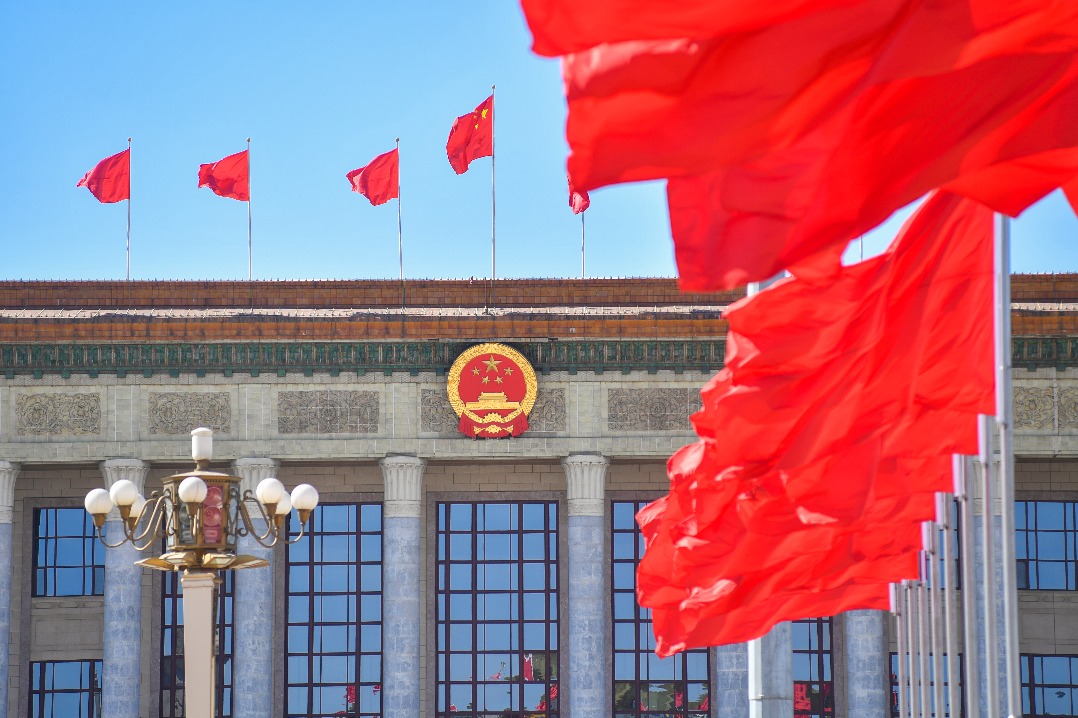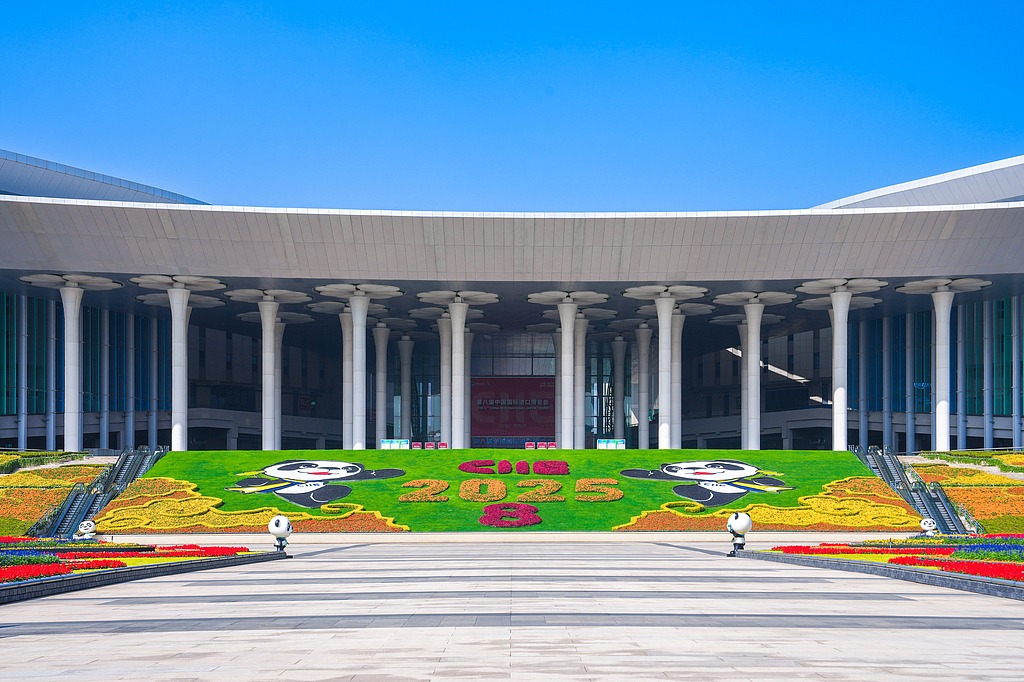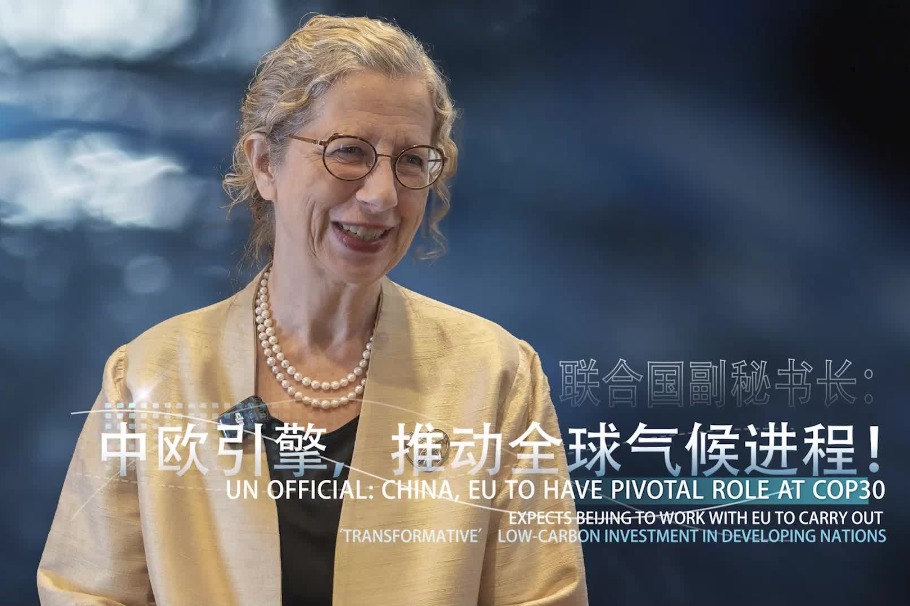Summit swell
Improved relations between China and the US would also help spur the economic integration of East Asia


Improved relations between China and the US would also help spur the economic integration of East Asia
The meeting between President Xi Jinping and his US counterpart Joe Biden in San Francisco, along with his participation in the APEC Economic Leaders' Meeting, has had a positive bearing on the relations between China and the United States that have been caught in a downward spiral for the past few years. Prior to the APEC meeting, Chinese Vice-Premier He Lifeng met with US Treasury Secretary Janet Yellen, and the two sides reached a consensus on not seeking to decouple the two economies. From now to next year's US presidential election, the bilateral ties have a precious but brief window in which to stabilize and take a turn for the better.
Although the challenges and uncertainties confronting the China-US relationship are expected to persist, the two sides can make efforts to shape a favorable environment for the building of stable and healthy bilateral relations, and prevent the ties from losing direction. The US side has proposed to build guardrails for the growing strategic competition with China. China, on its part, seeks to strengthen the positive factors in bilateral relations and help create a global and regional environment that is conducive to improving the China-US relations and arresting its worsening trend.
Trade and the economy are breakthrough points for improving the China-US relationship. To resume the negotiations on a bilateral investment treaty will help the world's two largest economies avoid decoupling from each other. The negotiations between He and Yellen stressed the importance of providing a level playing field for enterprises and workers of the two countries. Given that the two countries accuse each other of foul play, the two sides need to reduce misperceptions through dialogue.
In fact, the two countries started negotiations on a bilateral investment treaty during the Barack Obama administration, aiming to solve the structural frictions that arose from the changing dynamics in bilateral economic and trade relations.
The global financial crisis exposed the unsustainable economic structure of the US, which faces huge pressure for economic restructuring, while China also needs to address the daunting challenges of avoiding the middle-income trap and achieving common prosperity. Reform in both countries has entered a deep-water zone where tough challenges need to be tackled. This is why a bilateral investment treaty is needed: to stimulate the domestic reform of both countries and promote their respective development.
By proactively embracing the second wave of integration of the Asia-Pacific region, China-US relations can serve as an anchor for regional stability and peace. There exist the risks of potential conflict between the two countries in the South China Sea, the East China Sea and the Taiwan Strait. It is imperative that the two nations properly manage the risks in these sensitive regions.
To some extent, the deterioration of China-US relations over recent years has been closely related to the weak momentum of regional integration in East Asia. East Asia saw rising regionalism at the turn of the century. But the momentum of regional cooperation waned after 2005 due to the souring of the China-Japan relationship. Over the past decade, East Asian countries have largely enjoyed economic growth and improvement of people's livelihoods. The collective rise of developing countries in the region has ushered in a new wave of regionalism.
But the collective rise of East-Asian countries has triggered huge demand and enthusiasm among regional countries to enhance connectivity within and across borders. For example, the Jakarta-Bandung High-Speed Railway is the first of its kind not only in Indonesia, but also in Southeast Asia. Before that, the China-Laos Railway turned Laos from a landlocked country into a land-linked one, providing great development opportunities for the Southeast Asian nation and laying solid ground for building a railway network that connects the whole of the Indo-China Peninsula. Therefore, this new wave of regional integration in East Asia will be full of internal vitality.
China-US relations are not only correlated with Asia, but also associated with the evolving strategic concept of Europe. The Ukraine crisis has posed a huge challenge to Europe's security structure, prompting the Europeans to reflect on their security concept. Some in Europe believe that it is Europe's lack of its own powerful military deterrence that emboldened Russia to attack Ukraine, while others attribute the tragedy to the fact that Europe abandoned the dialogue-based security concept it used to uphold and advocated a revival of the 1975 Helsinki Spirit. Although the latter's voices are weaker than the former, it still represents a return of Europe to a broader and more cooperative security concept.
The China-proposed Global Security Initiative inherited and developed the cooperative security concept upheld by the Association of Southeast Asian Nations, being a major theoretical innovation.
China and the US should strive to break away from traditional political thinking, and contribute more wisdom to the settlement of conflicts in the Middle East and other regions in the world. China has decided to set up the International Organization for Mediation in the Hong Kong Special Administrative Region, which will provide a new solution to settle global disputes. It will create a global mechanism in which all stakeholders are accustomed to managing conflicts through dialogues and cooperation.
As an old Chinese saying goes: "Like a boat sailing against the current, we have to forge ahead, or be swept downstream." China and the US need to find a way to get along with each other and prosper together. It is hoped that they can not only build a bridge that links the two countries with each other, but also lead East Asia and the world to peace and prosperity.
The author is an associate professor of international relations at Niigata University in Japan. The author contributed this article to China Watch, a think tank powered by China Daily. The views do not necessarily reflect those of China Daily.
Contact the editor at editor@chinawatch.cn.


































